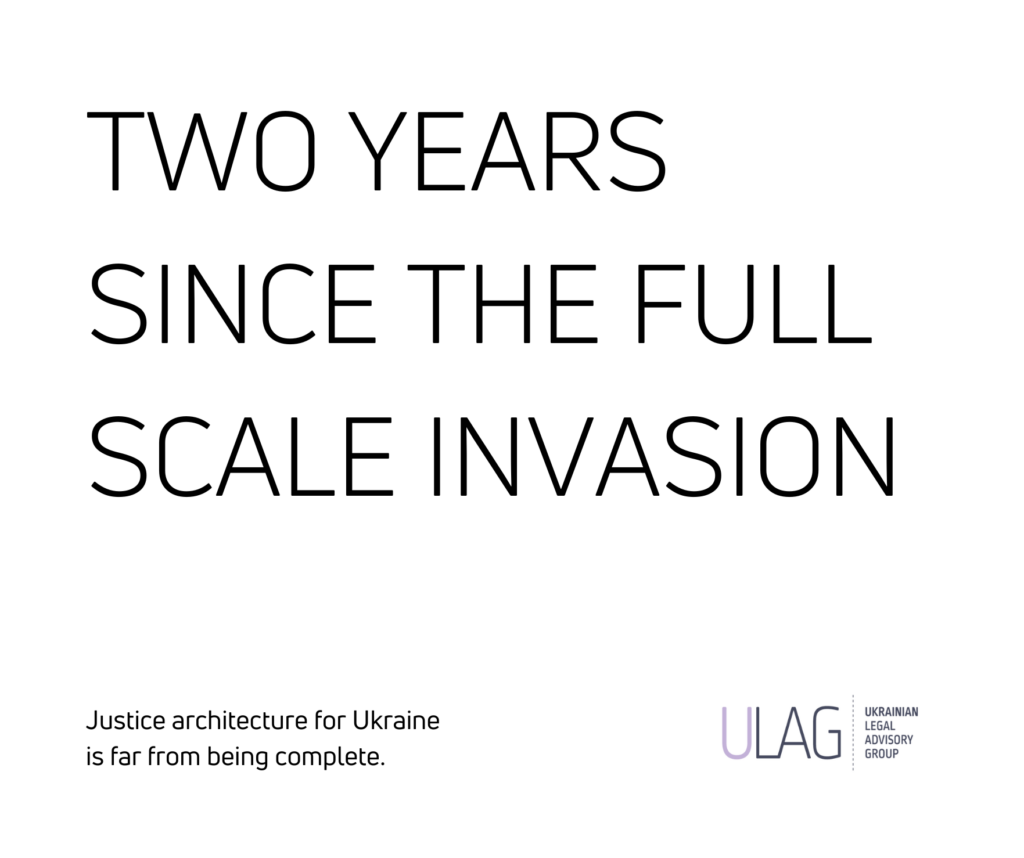Two years since Russian full scale invasion of Ukraine
Almost 10 years since the start of the armed conflict in Crimea and eastern Ukraine , and 2 years since its escalation to the full-scale invasion, it is the time to do justice and accountability stock taking.

Ukraine’s tragic war activated the global justice response. Ensuring justice and accountability finally became included in the top 3 talking points on the agenda of the world political leaders and parliamentarians. Many initiatives have been launched (JIT, ACA, DIalogue Group,The Group of Friends of Accountability, etc), regular technical assistance has been provided to Ukrainian authorities, the ICC opened an investigation. And yet:
- Domestic legislation has not been harmonised with IHL and ICL. No such law(s) is (are) expected to be considered by the parliament anytime soon. Rome Statute ratification has been consistently deprioritised and considered as a non urgent matter.
- The Office of the Prosecutor General is yet to define and articulate its priorities vis-a-vis prosecution of atrocity crimes. It remains unclear how the authorities are going to ensure effective investigations of over 120 000 registered episodes since February 2022;
- Effective law on victims and witness protection in an armed conflict has not been adopted;
- Most investigations opened in third states under the principle of universal jurisdiction are structural investigations which means they limit themselves to evidence gathering. States are reluctant to open individual investigations unless victims or perpetrators are nationals of those states due to their own capacity issues;
- Investigations into the alleged crimes committed before the full-scale invasion have been deprioritised by Ukraine and the ICC;
- Crime of aggression is still widely considered as the only real “accountability gap”, despite all the facts pointing to gaps in prosecution of other grave crimes. Public rhetoric on establishment of the special tribunal is limited to the crime of aggression only and “lack of appetite” to consider a more reasonable and needs based solution.
It is clear that in order for Ukraine and the world to deliver meaningful justice to the victims of this war, the response that is required will have to be more sustainable, streamlined, better coordinated and more resource efficient. The voice of civil society must not be dismissed. This means that issues listed above must be resolved as a matter of priority followed by the long list of what else needs to be implemented.
Furthermore, as the the Core Group is considering a hybrid option for the specialised tribunal as a step in the right direction, it is critical that the jurisdictional scope of the tribunal includes not just the crimes of aggression but at the very least all core crimes such as war crimes, crimes against humanity and genocide and has not only regional but international support. Only then there might be hope for the victims that they have not suffered in vain.
